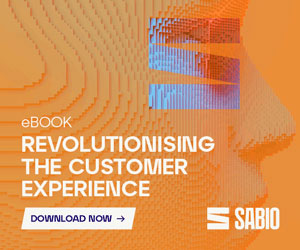As they cater for a very wide demographic, housing association customer service must meet diverse needs, including supporting some of the most vulnerable groups in society.
They also have to deliver on new Tenant Satisfaction Measures set by the regulator. This requires housing associations to become more open and engage with their tenants and their needs.
Meeting Diverse Needs Across Housing Associations
Above all housing associations need to adopt a people-centric approach when it comes to customer service. While every tenant is different, with their own individual needs, they all want their time to be valued. Everyone wants their expectations met and their complaints listened to and acted on.
Some residents may not have English as their first language. Others may have specific learning difficulties requiring more help in managing their lives.
Some need additional support due to mental or physical disabilities or because of frailties such as mobility issues or hearing difficulties.
And there will be tenants that are not confident with technology, preferring face-to-face or telephone interactions.
Housing associations have a duty of care to provide the same level of service to everyone. And today’s tenants expect the same quality of service they experience when dealing with leading brands.
How Technology Helps Build Greater Trust
Customer service technology can support this people-centric approach in multiple ways:
Support Agents to Deliver Empathy and Understanding
The agent experience is essential to housing association customer service. Agents must be able to show empathy and understanding, especially when dealing with vulnerable customers.
In this training is key, but so is technology. Access to a comprehensive knowledge base can help agents find answers, empowering them to resolve difficult customer issues.
Unified communication tools such as Microsoft Teams allow agents to collaborate and receive real-time advice and support from colleagues.
Self-service technologies such as AI chatbots help by allowing customers to resolve simpler queries themselves. This frees up agents to spend more time with tenants who are in need that extra empathy and human touch.
Providing Digital Channels and Self-Service
Many residents today will want to interact digitally to save time and make their lives easier. Housing associations must therefore have the right digital channels in place.
These might include their own mobile app to cater to tenants’ all-round needs, or self-service chatbots to handle routine queries. Or it might involve deploying digital technology in specific instances such as sending WhatsApp or SMS reminders about upcoming appointments.
It’s important to remember that tenants who don’t have strong English will also want to interact digitally. This means there’s a responsibility to have digital resources available in other languages if the demand is there.
Using AI for Language Translation
AI technology allows housing associations to use digital channels to provide customer service in multiple languages, without employing additional staff.
AI-supported instant translation lets customers and agents use text-based chat while each types in a different language for example.
The customer asks questions in the language they are most comfortable in, and these are then instantly translated into English for the agent. The agent’s English responses in turn are instantly converted to the customer’s preferred language.
Choosing Video for Reassurance and Versatility
Video can be a versatile tool for housing association customer service. Some tenants want the reassurance of seeing an agent, rather than a disembodied voice at the end of the phone.
Because it allows participants to use sign language, video can be the perfect alternative to the phone for those with hearing difficulties.
For tenants with mobility issues video avoids the need to travel to “see” someone. And adding subtitles in different languages to instructional videos is an effective way of providing information and advice to people that don’t speak English.
Learning from the Voice of the Customer
Housing associations need to base their customer service strategy on customer wants and preferences. This means relying on data-driven decision-making rather than guesswork.
An important aspect of this is collecting feedback and insights via Voice of the Customer programmes. For example, analysing customer service interactions (such as through call recording) can help to build up a picture of what customers want.
Customer complaints too must be treated as valuable feedback to act on and learn from, not something to be defensive about. All of this can help housing associations tailor their service more effectively to ensure they are meeting customer needs.
Providing Remote Support
Technology enables housing associations to provide remote support to vulnerable customers. This can include, for example, regular virtual check-ins to see how tenants are and video calls with support workers to allow them to flag any concerns.
Additionally, providing online resources such as instructional videos or training means tenants can access information whenever it is needed, potentially avoiding the need for home visits.
Housing associations need to ensure that their customers are at the centre of everything they do. They must be able to meet tenants’ individual needs through a personalised approach built on understanding, empathy, and respect. To find out more on how to do this read our new guide.
This blog post has been re-published by kind permission of Enghouse Interactive – View the Original Article
For more information about Enghouse Interactive - visit the Enghouse Interactive Website
Call Centre Helper is not responsible for the content of these guest blog posts. The opinions expressed in this article are those of the author, and do not necessarily reflect those of Call Centre Helper.
Author: Enghouse Interactive
Published On: 2nd May 2023
Read more about - Guest Blogs, Enghouse Interactive






 Enghouse Interactive delivers technology and expertise to help bring your customers closer to your business through its wide range of customer contact solutions.
Enghouse Interactive delivers technology and expertise to help bring your customers closer to your business through its wide range of customer contact solutions. 




























